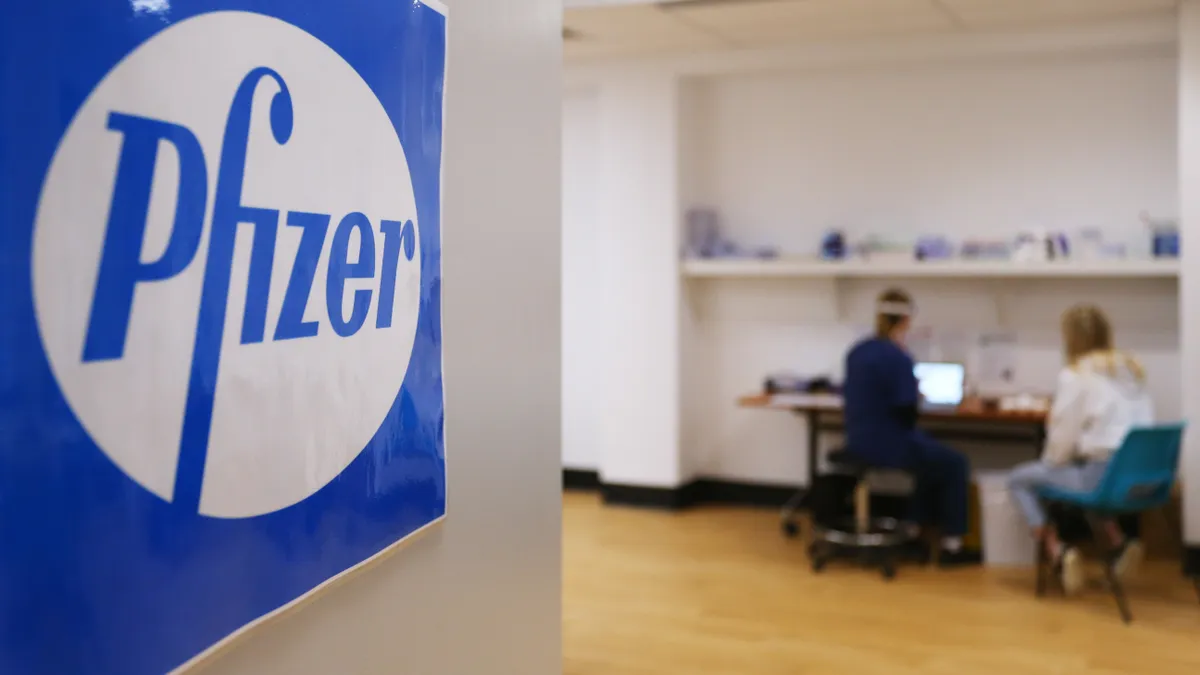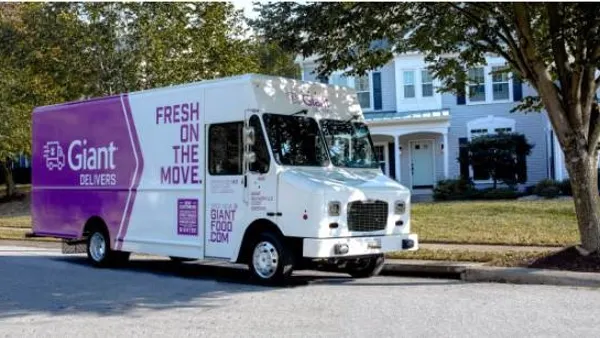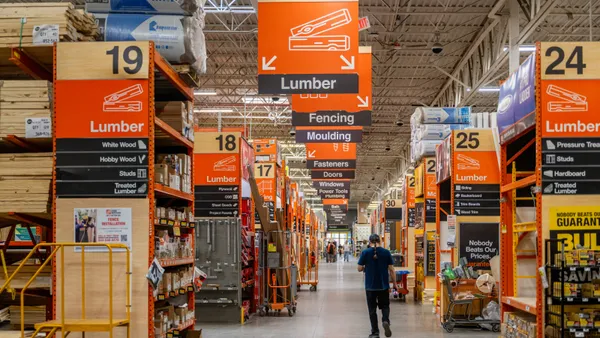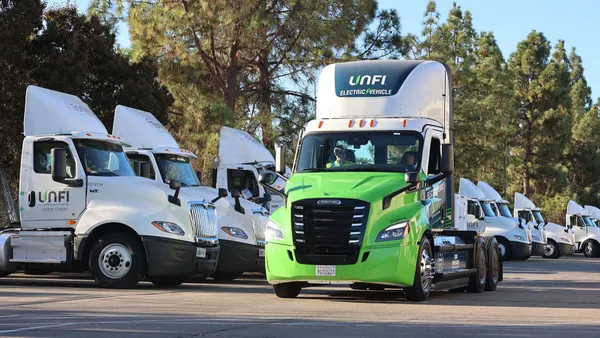ATLANTA — Pfizer overhauled its supply chain as the COVID-19 pandemic spread throughout the world in 2020, scaling its manufacturing capabilities in parallel with advancements in vaccine research to prepare for lightspeed vaccine distribution, a company executive told CSCMP EDGE 2021 attendees Monday morning.
"We designed everything based on speed, because every day you delay a patient backward could be a death," said Jim Cafone, vice president of strategy and business operations at Pfizer.
Pfizer had to prepare for the mother of all demand surges as its vaccine development advanced, with a customer base that consisted of the entire world population.
"Our CEO (Albert Bourla) made sure that he spoke to as many heads of state, heads of health ministries and said, 'You want to get your orders in,'" Cafone said.
The company would have to transform its supply chain to meet that global need. In January 2020, Pfizer had produced 200 million vaccine doses in a year, he said.
"No one has the supply chain and manufacturing capabilities standing around and waiting for a pandemic," Cafone said.
This was evident when Pfizer began sourcing the raw materials necessary for the vaccine, Cafone said. Suppliers of lipid nanoparticles, the material which surrounds the messenger RNA in a vaccine dose, had been accustomed to supplying universities and academic centers, not companies responding to the mass need associated with a pandemic, he said. This meant they were used to handling orders totaling several liters, not orders of hundreds of thousands of liters.
Still, in a span of months, Pfizer was able to strengthen its production power for pandemic-level demand. Pfizer has already produced just under 1.9 billion doses of its COVID-19 vaccine to date and shipped about 1.5 billion of those doses to inoculation centers, Cafone said.
As Pfizer and BioNTech scientists were advancing vaccine research, the manufacturing side of the company was scaling and redesigning its network to produce the future doses in parallel rather than going through a sequential process, Cafone said. There were still plenty of unknowns, but Pfizer's network needed to prepare no matter what form the vaccine took, he added.
To meet the incoming demand, Pfizer transformed its manufacturing process, spending $700 million to build new manufacturing capacity, Cafone said. Pfizer also put in place two parallel supply chains for redundancy and re-prioritized capacity, it said last year. Production of its vaccines takes place at factories in St. Louis, Andover, Massachusetts and Kalamazoo, Michigan.
Much of the technology in the production process is from Pfizer itself. Cafone said he isn't opposed to asset-light management and cross-company collaboration, but added that there are instances when it's a good idea to have those production capabilities internally — Pfizer produces lipids of its own and even makes its own dry ice for storage at the Kalamazoo facility.
For distribution, Pfizer didn't work through McKesson, which the federal government chose to lead distribution as part of Operation Warp Speed, opting to go for a just-in-time system shipping from plants to vaccination points. The company said previously this would keep the vaccine to its strict cold chain requirements.
"The network that we had to build at each one of the stages, my team had to do, and this was through a lot of complex modeling, and this was through a lot of sheer determination and interactions with manufacturing plants," he said.
Pfizer's vaccine manufacturing capabilities includes not just manufacturing and logistics, but software as well, Cafone said. This means depending on how the virus evolves, Pfizer can write new software to combat it while keeping the physical manufacturing process the same.
To that end, Pfizer is working on vaccines that can combat the emerging COVID-19 strains, Cafone said. However, repurposing the current "software" would require Pfizer shutting down its manufacturing network for 2 to 3 weeks.
"If that network goes down for three weeks, it leaves 200 million doses, 100 million people don't get a vaccine," he said. "How many people die? Those are the real kinds of things that we're working on."















